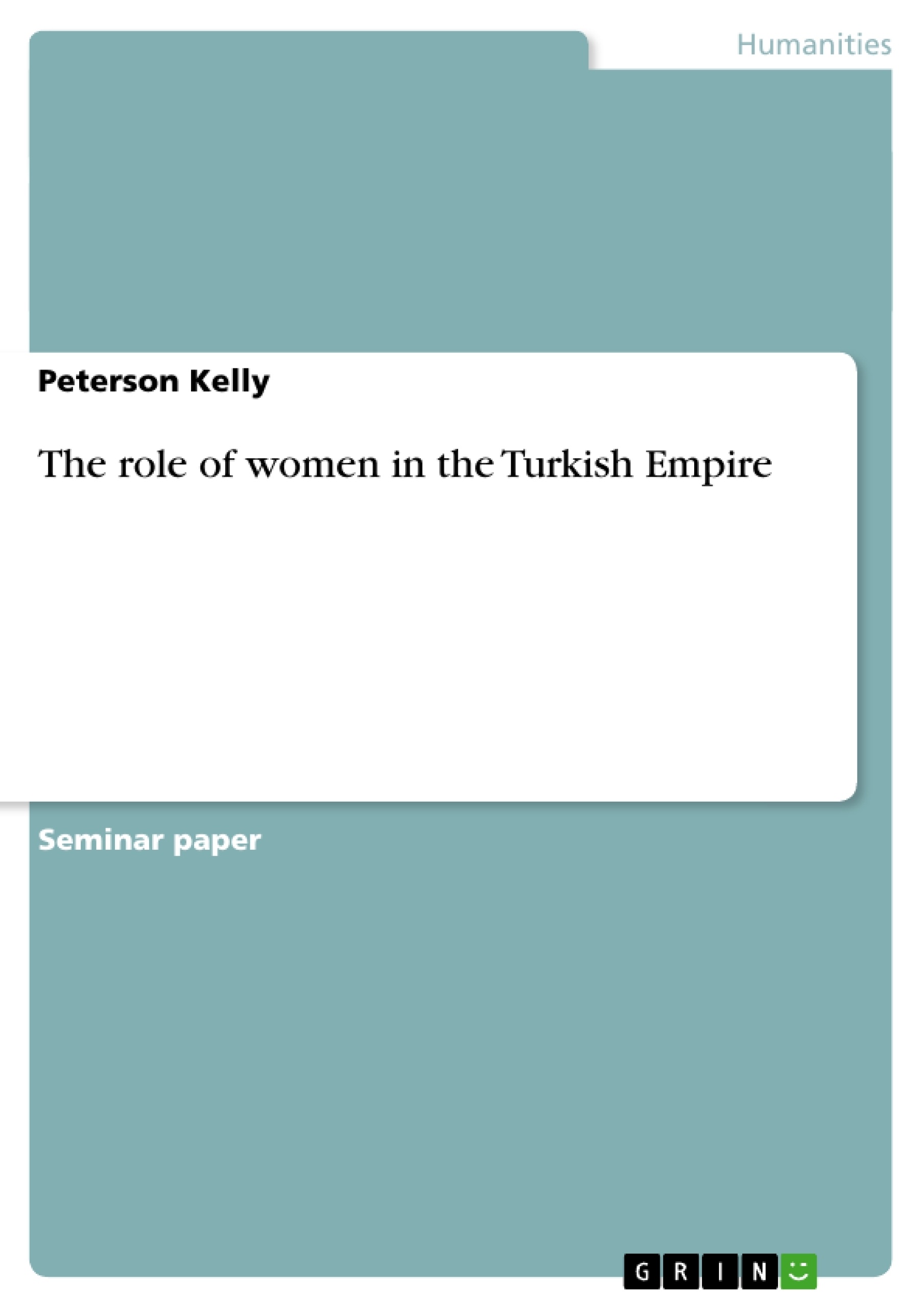In most communities, women are viewed as the threads that knight the society together. They are the source of life and are treated with respect and highly valued. However, this was not the case in ancient empires. The rights for women have been a constant struggle that has come to be standardized in the twenty first century. Despite this, some societies especially in the less developed countries continue to deny women their basic human rights. To understand how women strive and contribute to the development of the society, this paper is dedicated to examining the role that women played in the ancient Turkish empire to date. It is worth noting the social, political, economic and religious inclination of a society to help in understanding the role that women play in such a community.
As of 1500 to 1800, the Turkish Empire was among the three major Islamic empires that dominated the southern Europe to the far north of India. It was known as the Ottoman Empire. It was made of the Balkans, the Middle East, North Africa and part of Eastern Europe . The ideas of the empire were closely tied with the Islamic culture and religious practices. As a result, there was a variety of challenges that women who lived in this empire experienced. At this point in time, there was a worldwide unrest as leaders tried to expand their empires. Issues of slavery were a common phenomenon as slaves were traded to enhance power of an empire and promoted development within the empire. To increase its power, the Ottoman Empire used Islamic laws to bring stability and contribute to the judicial system that governed the society and guaranteed stability. However, despite its efforts in achieving stability, this laws were biased and sidelined the needs of women and overlooked them as lesser beings. To curb the situation and ensure that they liberated themselves, women took different roles to spearhead a mutually fulfilling society that addressed their plight. On different occasions, the steppe culture that was dominant in this empire influenced the rule of the Muslim law bending some of the needs of the leaders to fit the needs of the states.
The strength of a state, nation or empire is dependent on the structure of the family. If the family structure within a region is cohesive, then the state will enjoy peace and harmony and this will eventually contribute to development of the region. During the ottoman period, the family was patriarchal. This means that the structure of the family was m
Table of Contents
- Introduction
- The Family Structure in the Turkish Empire
- The Role of Women in the Turkish Empire
- Socialization During Special Occasions
- Polygamy in the Turkish Empire
Objectives and Key Themes
This paper aims to explore the role of women in the ancient Turkish Empire, examining their social, political, economic, and religious experiences within the context of the Ottoman period. The study seeks to understand how women navigated a patriarchal society, contributing to the empire's development while facing challenges and limitations imposed by prevailing norms and Islamic laws.
- The influence of Islamic culture and religious practices on women's lives
- The impact of the patriarchal family structure on women's roles and opportunities
- The significance of women's social interactions and participation in special occasions
- The complexities of polygamy within the Turkish Empire
- The varying experiences of women across different social classes and economic backgrounds
Chapter Summaries
- Introduction: This introductory chapter sets the stage by highlighting the crucial role of women in society, acknowledging the historical struggle for women's rights, and introducing the focus of the paper: examining women's experiences in the Turkish Empire.
- The Family Structure in the Turkish Empire: This chapter delves into the patriarchal family structure of the Ottoman period, emphasizing the division of labor between men and women. It underscores the significant contributions of women in rural areas, particularly their labor in agriculture and their role in supporting the empire. The chapter also highlights the differences in lifestyle and opportunities between urban and rural women, with urban women often confined to domestic roles within the household.
- The Role of Women in the Turkish Empire: This chapter explores the various roles that women played in the Turkish Empire, emphasizing the influence of social status and economic wellbeing on their experiences. It discusses the lives of women of higher social standing, such as the wives of emperors, and contrasts them with the experiences of women who served as servants or slaves. The chapter also examines the expectations placed on women in terms of domesticity, social interaction, and their responsibility to maintain family legacy.
- Socialization During Special Occasions: This chapter examines the importance of special occasions in the lives of women within the Turkish Empire. It highlights the significance of events such as weddings, mourning ceremonies, and visits to public baths, which provided women with opportunities for social interaction and expression. The chapter also explores the role of women in these events, highlighting their responsibilities and their contributions to the social fabric of the community.
Keywords
This preview delves into the significant themes of women's roles, family structure, social life, and Islamic influences within the historical context of the Turkish Empire. Key concepts include patriarchy, domesticity, social class, special occasions, polygamy, and the varying experiences of women across different social and economic backgrounds.
- Quote paper
- Peterson Kelly (Author), 2012, The role of women in the Turkish Empire, Munich, GRIN Verlag, https://www.grin.com/document/280654




